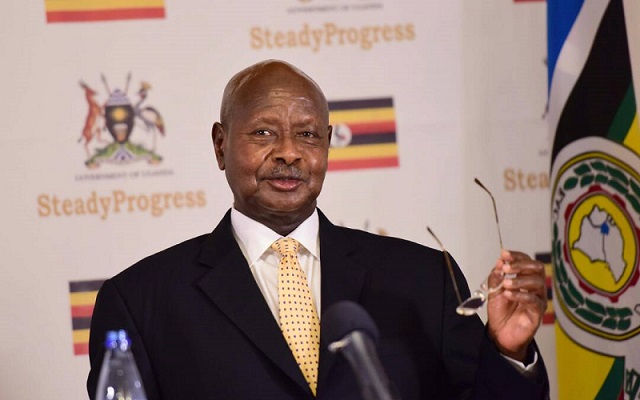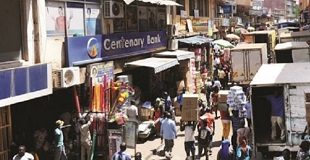
A pan Africanist’s comment on the on-going debate between the clergy and Museveni
COMMENT | KANT ATEENYI KANYARUSOKE | President Museveni’s year-end address might have rubbed some religious leaders the wrong way. Particularly, Archbishop Kizito Lwanga of Kampala Catholic Archdiocese and Euro-Africa’s David Kayumba were most succinct in their responses. As a pan Africanist activist, I will briefly comment on some of their retorts as reported in the newspapers.
First, Arch. Bishop Kizito Lwanga is reported to have implied that the president is diverting from his written word in ‘Sowing the Mustard seed’ and that members of parliament no longer mind the original NRM ten point program – both of which writings, he apparently admired. On face value, to many supporters and admirers of the original movement, there can hardly be a fault with those particular implications. But those writings were done by a then intellectual guerrilla who was not encumbered with competitive electoral politics in a ‘poor’ economy. As early as during write-up of the 1995 constitution, local and external ‘retrogressive, but intellectual forces’ started recovering lost ground in forcing through arguments for running government the way they seemed to understand and to want it best. To the mass ‘Movementists’, that was the real path to the ten point program’s graveyard. The eventual arrival was the coming of the ‘winner takes all’ form of so called ‘multiparty democracy’ in 2005’s referendum.
Other problems of the times aside (e.g. the Kony war), the issue for what could be thought of as the ‘Movementist’ champion ought to have been how to save some threads of the ‘Movement’ in the new dispensation: lest a then-40 year project crumbles at ‘his’ feet. Hence, the manoeuvres on presidential term limits removal then, and by a very long extension, on age limits recently. Bishop Lwanga – may be the ‘devil’ you seem to see, deserves some benefit of doubt: might it be that, that is one way of keeping hopes of your cherished original movement on a ‘life support’ machine in an era of haranguing hyenas and vultures? There could be other ways of course – and to some people, failure by Museveni to explore and nurture these others so far, is his greatest failing.
As for Pastor David Kayumba’s message, though I find it quite civil and respectful of the head of state, I note bits of ‘arrogance’ the president accuses some (please not all) religious leaders of, and shortfalls of logic in some instances. I will not comment on everything I could here – but would rather focus on issues related to pan Africanism.
First of all, most of us African peoples are interrelated – and in almost all cases, before present borders were drawn by outsiders, we were moving about settling in different parts of our nature-given continent – and trading with each other on equal terms: the Luos in present day Sudan, Uganda, Kenya and Tanzania are one example; the Bantu dialects speakers are well known all way from present day Cameroon to the Cape. So are the hunter-gatherers of unsettled areas from the Cape to the forests of Congo and Uganda. Working in South Africa now, I can tell you of names like Ntwatwa, Lungi (Karungi), Lungu (Ddungu, Irungu), Ilanga/Langa (Maranga, Baranga) etc. all carrying nearly identical meanings. The Hausa-Fulani peoples of mid-Western Africa from the Niger to Senegal; the Sudanic peoples all way from Ethiopia’s western border to the mid-Eastern Atlantic coastline. Colonial borders simply divided specific nationalities and stopped natural migrations that could have helped ease some of the problems we are currently witnessing on the continent.
In present circumstances, why should we be working to dissolve those borders? Many reasons – given by others. But to those, add the creation of a critical mass of talented individuals (call them geniuses) within one political entity not encumbered by limited operational spaces or opportunities for service of the African nation. Nobody owes Africans a living – except Africans themselves. There is no ‘free’ charity on this resource scarce planet. And as other peoples seek to settle on other planets – in part due to resource scarcity here, it may not be long before some suggest resettling this continent to the peril of its present occupants. I would suspect that this is what the president is afraid of when he asks: “Who will guarantee security of the African?” Also add the fact that outside the continent, your treatment by others really matters less whether you claim to be from Nigeria, Botswana, South Africa, Somalia or Chad. The fact that your skin is melanin-rich, these others, first suspect you as a potential economic parasite carrying zoonotic diseases or ‘unwanted substances’ and running away from primitive tyrants.
Therefore, among so many other reasons, present day Botswana, South Africa, Ghana, Rwanda, etc. need people thinking like Museveni on this issue not just within their borders but across the entire length and breadth of the continent. Dissolving borders is simply not a one country affair.
The question of so called local service delivery calls for more serious thought than Kayumba seems to care to portray. Present day African governments, including the so called ‘rich’ South Africa, Nigeria, Egypt, and the so called ‘better governed’ Botswana, Ghana, Rwanda, need meaningful resource mobilisation first before resource allocation suggested by our good pastor. Wealth of nations is never created by distribution or by moralising but by actual scientific hard work. This latter is lacking in sufficient measure in each and every tiny enclave, otherwise called country – on our continent. Mr Pastor, kindly note that even in those African enclaves where you think there is ‘good’ wealth utilisation, the little was – and is created by outside scientific persons primarily for their own benefits, not for Africans. The sooner we Africans consolidate to form a big enough pool of such persons to freely work in any corner of the continent for our people, the easier will be the issue of ‘resource allocation’.
*****
Dr. Kanyarusoke is a pan Africanist Engineering Don and head of Progressive Africa Solar Engineering Company in Cape Town, South Africa.
 The Independent Uganda: You get the Truth we Pay the Price
The Independent Uganda: You get the Truth we Pay the Price


